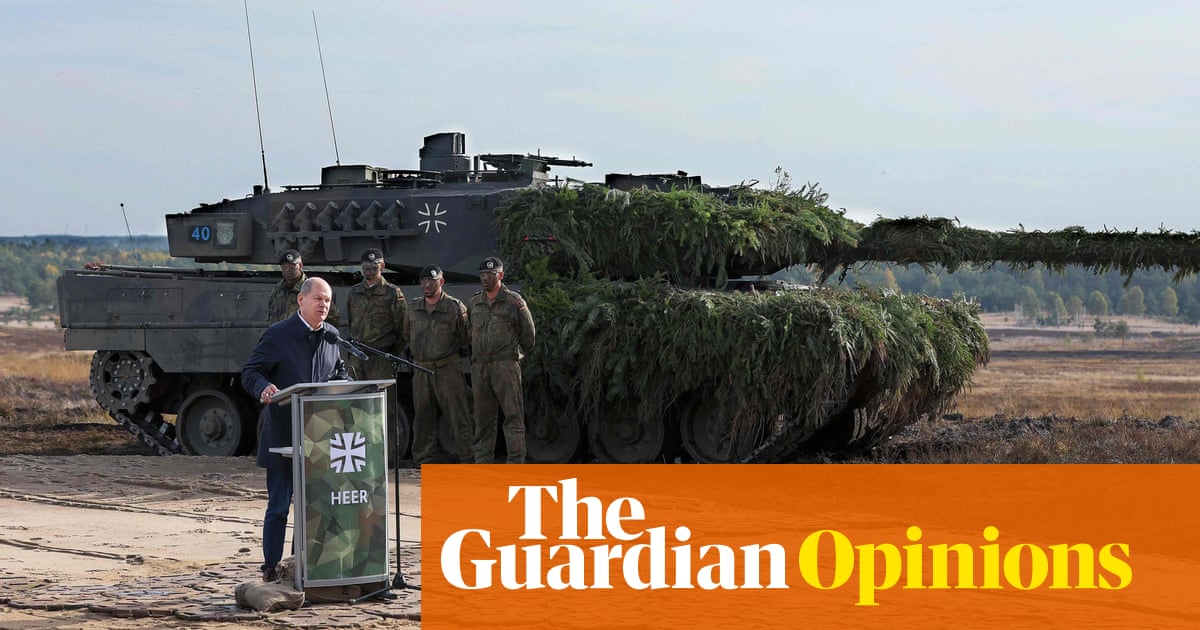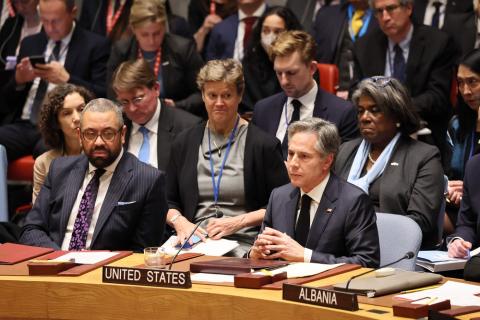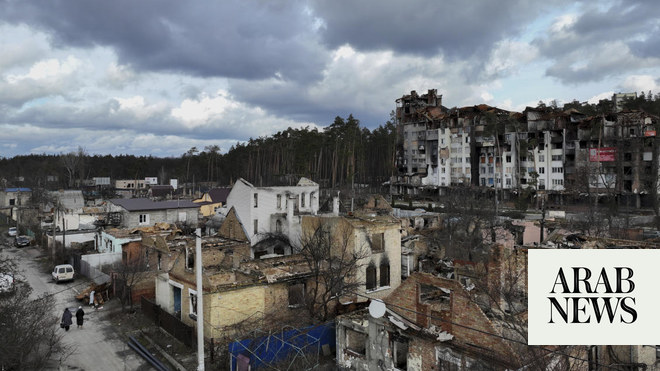
Shortly after Russia invaded Ukraine, in February, nearly 40 countries responded with coordinated sanctions against the aggressor. They had three aims: to cripple the Russian economy by limiting the ability of banks to access dollars and the US financial system; to curtail exports of hi-tech goods and services to reduce Russia’s ability to fight the war; and to target allies of the Kremlin and businesses. This unprecedented economic coercion has not been able to obliterate the Kremlin’s resolve for war or its economic capability. Nor have the sanctions crushed Russia’s standard of living. But look closely, and you will see that they are succeeding in systematically crippling the country, and remain necessary in order to bring the war to an end.
Russia’s isolation now that its supply chains are decimated, along with the mass exodus of an estimated 1,000 foreign firms, threatens its future growth and power projection. By limiting Russian imports, export controls have created a trade surplus. High energy prices have also raised demand for rubles. As a result, the ruble has appreciated 29% against the dollar.
Annual inflation peaked in April following supply disruptions, and then declined to 13.7% in September when the ruble appreciated on the back of petrodollars, lower consumer spending and import renewal. Russian growth is expected to fall by 3% in 2022, significantly less than the IMF’s earlier forecast of an 8.5% decline, which underestimated the cushioning effect of the surge in energy prices.
However, better-than-anticipated forecasts mask lower living standards due to trade barriers and divestment. For example, consumer spending on apparel, footwear and accessories fell by roughly 40% in the first week of October. Car production dropped by 37%, a casualty of the chips ban. Spending on required goods such as groceries was 15% higher than in 2021, while at the same time median salaries increased by only 7% between the end of January 2022 and the end of August 2022.
Continued receipts from oil and gas are keeping the economy humming along. The US and the EU plan to reduce oil revenues through a cap, limiting the price at which Russia can sell oil. The cap will work by denying insurance and other services to carriers shipping Russian crude oil unless it is sold at the price limit. However, Saudi Arabia has thrown a wrench in these plans by colluding with Russia to cut supply and increase prices. The impact of the US/EU plan remains to be seen.
But sanctions are having a demonstrable effect on Russia’s strength in Ukraine. A recently released report by the US treasury and commerce department shows that since last autumn semiconductor imports have fallen 70%, slashing Russia’s production of hypersonic ballistic missiles, surface-to-air missiles and other precision weapons. Chokepoint technologies such as bearings, vital for aircraft, tanks, automatic firearms, heavy artillery and submarines, have also been targeted and are in short supply with few substitutes.
Alternative suppliers with the necessary technological sophistication are hard to come by, according to the treasury deputy secretary, Wally Adeyemo. The broad coalition supporting sanctions means Russia is forced to source from technologically weak countries such as North Korea and Iran. China’s largest chipmaker, SMIC, says it has never supplied Russia and will not flout sanctions.
By June, the global Russian Elites, Proxies and Oligarchs (Repo) taskforce had frozen $30bn of elite assets, and restrictions were subsequently expanded to military, finance, parliamentary officials and their families. Alongside this, there is a concerted effort to strip Russia of human capital. Many foreign institutions have stopped collaborating with scientists in Russia, and the Biden administration has invited Congress to amend the Immigration and Nationality Act in order to encourage Russians with advanced degrees to emigrate to the US. Some Russian elites, including oligarchs, want to stop the brain and money drain. But the structure of Russian oligarchy, divided between business and politics, limits influence over Putin. Following the Russian leader’s money trail is also notoriously hard, because it is either scattered across a network of enablers or is hidden in offshore tax havens or state-owned enterprises.
Hurting Putin may be beyond the reach of current sanctions, but hurting elites still hurts the Kremlin if the underlying economy or the country’s ability to wage war is damaged. While individually each of the sanctions has its weaknesses, they work through force multiplication. Restricting access to finance makes it less lucrative to operate and live in Russia, encouraging companies, prospective soldiers and Russian elites to leave. Cutting off access to global supply chains for cutting-edge technology makes it harder to attract foreign investment and foster research and innovation. Squeezing elites through asset freezes and property confiscations diminishes funding for homegrown alternatives to foreign technology. Striking at talent and science dooms Russia’s economic prospects and decreases the likelihood of military renewal via its industrial base.
Nearly eight months after Russia’s invasion of Ukraine, these concerted measures have not been able to bring an end to the war – a predictable outcome that remains better than the alternatives. They have, however, drastically reduced Russia’s influence over the west (short of its commodity leverage and nuclear threats). Doing nothing, or negotiating a diplomatic solution, as during the 2014 invasion, would only embolden Russia in making further land grabs, while military confrontation with Nato countries risks generalised war.
Using economic coercion to deter and fight great powers is hard but not futile. Sanctions are a potent instrument for policing international order when deployed by the world’s first financial superpower and its allies. The chipping away will take time, but time is not on Russia’s side. The cocktail of sanctions, trade measures, travel and research prohibitions will spoil Russia’s war effort in Ukraine and ultimately its great-power status.
Carla Norrlöf is a professor of political science at the University of Toronto and senior fellow at the Atlantic Council












